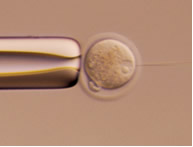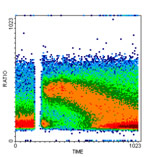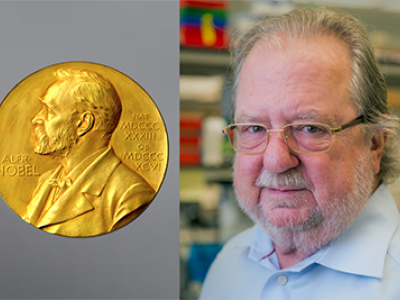Cancer Research Laboratory

Mission and Overview
The mission of the Cancer Research Laboratory (CRL) is to facilitate cutting-edge basic science research at UC Berkeley, with the goal of identifying novel therapeutic strategies for the treatment of cancer.
The CRL fulfills its mission by providing campus researchers with access to advanced research technologies and instrumentation that would otherwise be too difficult or expensive for individual laboratories to acquire. The CRL employs expert support staff to operate its advanced instrumentation, and to help train individual researchers to apply CRL technologies in their research.
The CRL is utilized by more than 80 labs on campus, as well as by local biotech firms. The CRL provides access to advanced technologies that are essential to continue to recruit and retain the best researchers in the world to Berkeley.
History and Discoveries
The CRL began in 1951 when the California state legislature provided funds to establish a colony of mice of reliable genetic background to be made available to cancer researchers throughout the state and elsewhere. Throughout the years, the CRL has expanded in order to support new cutting-edge technologies at the forefront of basic cancer research. Over the years, these technologies have helped facilitate basic science discoveries that have made a major impact on cancer therapy. One recent success was the discovery that a new antibody, called anti-CTLA4, could stimulate the immune system to attack and eliminate a wide variety of tumors. This basic science discovery was made in the CRL at Berkeley and has since been commercialized into a highly successful drug, Yervoy (Ipilimumab), that has seen remarkable efficacy in treating human cancers.

Research Facilities
The CRL currently operates three major research facilities at UC Berkeley: (1) the Flow Cytometry Facility, (2) the Molecular Imaging Center; and (3) the Gene Targeting Facility. The Flow Cytometry facility provides access to advanced instrumentation that allows the high-throughput analysis and sorting of fluorescently labeled cells. The Molecular Imaging Center provides access to cutting edge microscopy to help visualize the molecular changes that occur in cancer cells. The Gene Targeting Facility helps to develop novel genetically engineered mouse models of cancer. Taken together these facilities provide support to hundreds of users from labs all across campus.
Support the CRL
Cancer remains a major challenge for humanity. Each of us has known someone who has suffered from this complex and potentially devastating family of diseases. Experience has taught us that there is not likely to be a simple single cure for cancer. At the same time, because of basic research conducted at Berkeley and worldwide, we have nevertheless seen remarkable gains in life expectancies and cure rates for cancer. The CRL is always looking for donors to help support its mission of researching the next cure for cancer. If you would like to speak to the CRL Director about giving opportunities, please email or call Dr. Russell E. Vance at the address provided in the sidebar.
FLOW CYTOMETRY FACILITY
Kartoosh Heydari
Alma Valeros (retiring in February, replacement has not been identified)
MOLECULAR IMAGING CENTER
Holly L. Aaron (retiring in March, replacement has not been identified)
Feather Ives
GENE TARGETING FACILITY
Angus Lee
Harmandeep Dhaliwa


